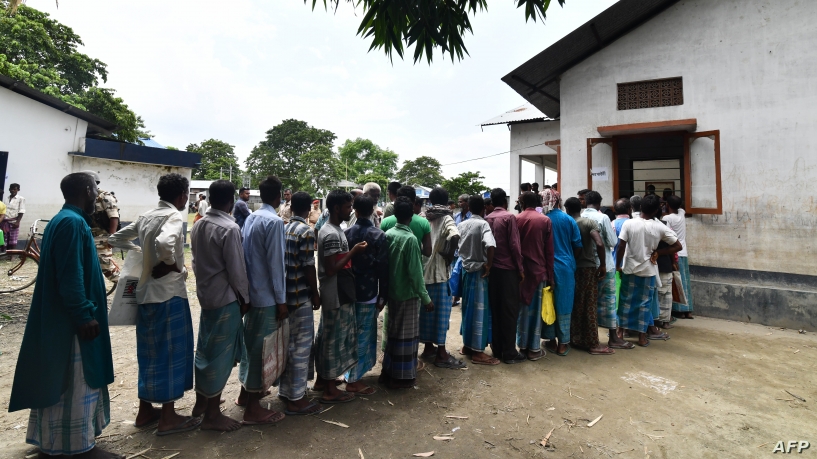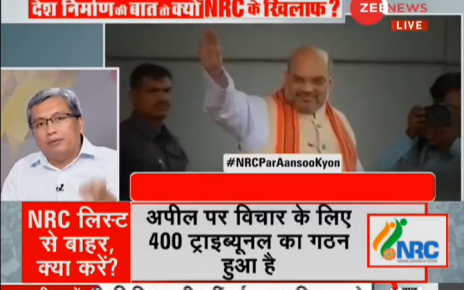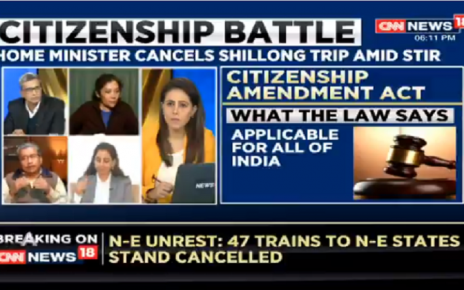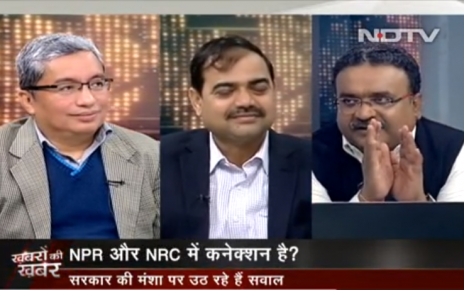VOA
By Anjana Pasricha
August 31, 2019
NEW DELHI – About two million people living in India’s northeastern state of Assam face the unnerving prospect of becoming stateless as authorities wind down a mammoth process to identify illegal immigrants.
Their names did not appear on an updated citizens’ register published Saturday. Human right activists say they would potentially add up to the largest number of people effectively stripped of their citizenship.
The state government has said they will be given the opportunity to prove that they are Indian citizens before foreigners’ tribunals, but many will find it difficult to navigate the legal process as they are poor and marginalized.
In an unprecedented exercise that began four years ago, the state’s 33 million people were called on to show documentary evidence that they or their ancestors had resided in India before 1971. Mandated by the Supreme Court, it aimed to weed out migrants from neighboring Bangladesh – an emotive issue that had triggered communal strife in the past in a border state where local communities complained of losing jobs and land to migrants.
The controversial exercise was backed by Prime Minister Narendra Modi’s Hindu nationalist Bharatiya Janata Party which has vowed to end “illegal infiltration.” It left millions in one of the country’s poorest states scrambling to produce documents dating back five decades to prove their Indian heritage. Critics slammed the process as one that targeted Muslim immigrants from Bangladesh.
It is unclear what happens next to the two million who now do not figure in the state’s citizens list. The number is half of the four million who were excluded from a draft list published last year, but is still massive.
Assam Chief Minister Sarbananda Sonowal in a video message on Friday said that no one excluded from the final list of the National Register of Citizens would be treated as a foreigner until their appeal was heard by a foreigners tribunal. They have been given 120 days to make an appeal and promised legal aid. The government says it will expand the number of tribunals from 200 to 1000 and will not send people to detention centers.

That is likely to do little to reassure the hundreds of thousands who have to produce papers to prove their citizenship in a country where many poor people did not attend schools, do not own property or have bank accounts and voting cards.
“It is not about who is a foreigner or who is a national, it is all about whether you have a document or not,” says Suhas Chakma, a writer and Assam-based human rights activist. He points out that in 1971, two thirds of Assamese people were illiterate and did not have any documentation. “People have already been economically ruined and they shall further be ruined. It is unimaginable tragedies cast upon them simply because they don’t have a document.”
Critics have also slammed the list for being riddled with errors — sometimes excluding one branch of the family while including the other. Lawyers say it is the first time the burden of proving citizenship is falling on people who have lived in a country for decades.
Muslims, who make up about one third of the state’s population, have complained of bias against them and opposition parties have expressed concern that the appeals process could discriminate against minority communities. The BJP has countered by saying that the two million also includes many Hindus.
Critics also point to a proposed citizenship law introduced by the BJP that would grant refugee status to non-Muslim immigrants. That has raised fears that while the majority Hindu community that figures among those left off the citizens roll can eventually hope to get citizenship if the law is adopted, Muslims would be excluded.
Some BJP leaders in the state appeared to step back from the controversial process undertaken in Assam saying it had left off many genuine Indians but said they remain committed to root out illegal immigrants.
Assam is a multi-ethnic state that includes Hindus, Muslims and a medley of indigenous tribes. With a 4,000 kilometer-long border with Bangladesh, it has long complained of illegal immigration.



